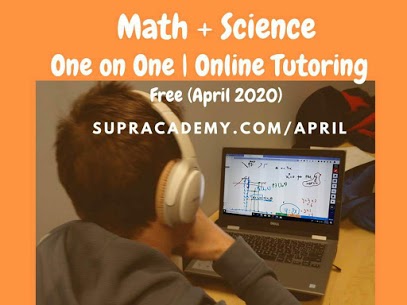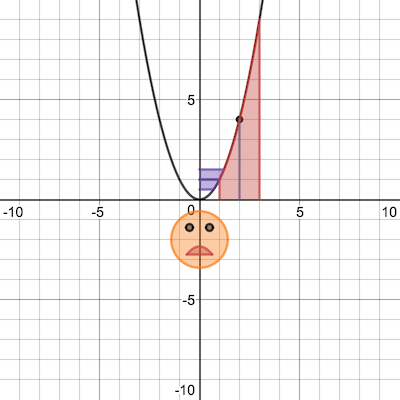Posts
-
Tips For Successful Online Learning

The COVID-19 Pandemic has dramatically altered the nature of education delivery and how students learn across the globe. Most students in the U.S. and Canada are currently staying at home and enrolled in some form of online learning. Even in the web-driven, hyperconnected world we live in, distance learning can be very challenging. It takes a lot of discipline, motivation and organization to make online learning effective.
The new reality can be hard to adjust to, and we recognize how challenging it can be to younger learners, so we have compiled a list of tips. We hope you find them helpful.
1. Make a plan
Most schools and teachers have already prepared your lessons, but it’s also a great idea that you come up with your own plan for how you will be studying at home. The more detailed your plan includes, the better.
2. Establish a routine
Treat your day as if you’re going to school. Get up, take a shower, have breakfast and sit at your desk to start your day. Attend online classes, study, take short breaks in between. Repeat.
3. Stay Focused
Avoid all the temptations around the house such as the TV, games, and snacks. It’s important that you focus and stick to your daily school work routine.
4. Take Notes It may be tempting to think that you don’t need to take notes since everything is now “online”. However, it’s still important to write main points down. Notes will help you remember lessons as you watch them. They will also be useful when reviewing the lessons later.
5. Take Assignments Seriously
Just because you’re not supposed to turn them in doesn’t mean that you are not supposed to finish your homework and assignments. They are still integral part of your learning experience and must be taken seriously.
6. Do One Thing at a Time
Finish one lesson before moving to the next. Finish one question before starting another. Finish one assignment before starting another. And make sure to celebrate your achievements along the way by taking short breaks!
7. Ask For Help
If you’re stuck with a problem or a concept, don’t hesitate to ask your teacher, a friend, classmate or your tutor. They will be able to show you what you’re missing, point you in the right direction and save you time & stress. If you have specific math or science problems you need help with, book a free session with us.
8. Assume that You are Not Going Back to the Classroom
Chances are, no student in Canada or the U.S. is going back to the traditional classroom this academic year. Online and at-home learning are the new reality for the rest of the school year. The sooner you accept that, the earlier you will be able to fully focus on your school work.
-
Keeping Students Engaged During The Pandemic – Doing Our Part

Hello Parents,
As you know, we have moved all of our tutoring sessions online starting in September of last year. With most people confined to their homes and students being out of school indefinitely, there has never been a better time to make the best use of online tutoring and online lessons. In addition to keeping students engaged for a few hours during the day, online sessions also offer the opportunity for them to catch up on their school work. And they do have some catching up to do: with lessons they had missed due to the interruptions in the past few months or with lessons they will likely miss due to the ongoing pandemic.
Given the current situation and the uncertainty we all face due to the pandemic, we’ve decided to do our part in supporting our community by offering all sessions within the month of April free of charge. We rely on the fees we charge to run our normal operations, but we also realize that everyone is going through an adjustment period and so parents could use a break as we all navigate through these times.
Please have a chat with your child, and decide if you/they would like to sign up for sessions with us.
How to sign up:
- You can follow the link below find a time that works best for your child to hold the online session. We will contact you as soon as we receive the request. https://supracademy.com/april/
As always, please don’t hesitate to reach out if you have any questions or would like to follow up.
Yours in Learning,
The SuprAcademy Team
-
Resource - Properties of Circles
A simple, one page summary of most of the things you need to know about circles. This is a nice quick reference to circles, though it also has some interesting advanced concepts covered as well.
Good for: definitions of terms, middle school and high school circle topics, quick reference

-
Exam Preparation Best Practices

Tests, quizzes and exams are inevitable parts of a student’s academic journey. Whether you are preparing for a small test coming up soon or your exam period in January, here are a few helpful thoughts on exam preparation that we routinely discuss with our students at SuprAcademy.
-
Organize your materials
Do you find yourself thinking, “I swear I have seen this before”, when you are trying to solve a particular problem? Chances are, yes, you did. Want to find out exactly where? Check your binder. The first thing you should do when preparing to study for your final exam is to go through your binder(s) for each subject and organizing your notes, worksheets, past tests and quizzes, handouts, your periodic table, formula sheet and any other material. There is no right or wrong way of organizing your materials: Do it the way that makes sense to you. The idea is for you to be able to know where your material relevant to a topic/problem is, so you can easily locate it when you need it.
-
Most challenging first
When studying for your final exam, work on chapters and concepts that gave you the hardest time during the term first. This will allow you to have plenty of time to read on the concepts in more depth or ask for help in advance.
-
Take advantage of tutorial sessions
Many schools have set times for students to drop in for extra help. Make use of these opportunities to ask questions or ask for clarifications of concepts that you find challenging.
-
Revisit your tests and quizzes
Go through your past tests, assignments and quizzes and find questions that you didn’t do well on or generally found the most challenging and review the concepts associated with those questions. Bonus: re-do the questions from your past tests. Solving problems and responding to questions help us to remember concepts better. We notice from our daily sessions at SuprAcademy that some students don’t like to look at their past test results again (especially if the results are not something that they are proud of!) but we always like to emphasize the importance of learning from your mistakes. It would be a great mistake to ignore past tests and quizzes while preparing for exams that will inevitably include concepts covered in the past tests!
-
Take advantage of your review packages
If you were provided with a test/exam preparation package, make sure you work on ALL of the given questions and understand all of the concepts covered there. Your teacher prepared the review package with the exam in mind. They should give you a good idea of what to expect in the exam and what area to spend most of your time studying on.
-
Don’t forget the first unit!
The units covered early in the semester are usually introductory and “easy” in nature. Some teachers may even choose to let student learn the first one or two sections on their own. Even though that’s generally true that they usually are introductory units, it doesn’t mean that they should be ignored. Theses units often lay the foundation for the rest of concepts covered in the textbook and/or the class. So make sure you budget some study time for the first units of your class.
-
Cheat sheets are not substitutes for studying
Some teachers allow students to prepare and bring in “cheat sheets” to their exams. It can be very tempting to think that having cheat sheets is going to make the exam “easy.” That’s not accurate. Cheat sheets should only be used as secondary backup for a quick glance when absolutely needed. If you find yourself avoiding studying certain areas of your math or science work because you have what you need in a cheat sheet, then you are doing it wrong.
-
Remember your formulas
One of the things we emphasize when working with our students at SuprAcademy is the importance of remembering the various math and/or science formulas that they have to work with. There is often a temptation to think that since you would be getting a “formula sheet”, you wouldn’t really need to remember any formulas.
Here are the reasons why you should remember (and understand!) your formulas:
1) you will save time! You may find it hard to believe, but it takes a lot less time to jot down any formula from memory than to copy it off of the given formula sheet. Try it.
2) knowing your formula = knowing your stuff. The best way to remember mathematical formulas is to understand the concepts around them. Formulas are not just random collection of symbols and letters.
-
Sleep well the night before exam day!
-
-
Handwriting - Elective or Mandatory?
If we are already in an age when kids learn how to use a touchscreen device before they learn how to handle a pencil, how long will it be before writing as we know it becomes obsolete?
When was the last time you (hand-) wrote a letter?
Its use already seems in decline:
“A 2012 survey of 2,000 adults by UK mailing firm Docmail found that on average, it had been 41 days since respondents wrote - and that two-thirds of us only write short notes like shopping lists.”
Interesting read.
http://www.bbc.com/news/world-us-canada-41927258
-
desmos - The Best Graphing Tool
The best math graphing tool you will ever use online or offline, period.

We have used desmos graphing tool with our SuprAcademy students when covering topics ranging from linear equations to exponential growth. It is easy to use, light, fast and beautiful. It supports graphing multiple graphs in the same frame, allowing for visual demonstration of different concepts such as function transformations and graphically explaining the difference among various functions.
Also available for download for offline use as an app for your Android/iPhone.
-
desmos - The Best Graphing Tool
The best math graphing tool you will ever use online or offline, period.

We have used desmos graphing tool with our SuprAcademy students when covering topics ranging from linear equations to exponential growth. It is easy to use, light, fast and beautiful. It supports graphing multiple graphs in the same frame, allowing for visual demonstration of different concepts such as function transformations and graphically explaining the difference among various functions.
Also available for download for offline use as an app for your Android/iPhone.
-
The Education Quality and Accountability Office (EQAO) has released the dates for the 2017-2018 test administration:
Ontario Secondary School Literacy Test (OSSLT)
Tuesday, April 10, 2018
Grade 9 Assessment of Mathematics
Monday, January 15, to Friday, January 26, 2018: First-semester students
Tuesday, June 5, to Monday, June 18, 2018: Second-semester and full-year students
Primary-Division and Junior-Division Assessments of Reading, Writing and Mathematics
Tuesday, May 22, to Monday, June 4, 2018
For more information, please visit the EQAO Website.